A Father's Legacy and a Desire to Make a Difference
In September 1953, Rupert Murdoch arrived in Adelaide, Australia, to take over the reins of the media company News Limited. Rupert was only 22 years old and had little experience in journalism, let alone running a newspaper, but his family had inherited a majority stake in the company after the death of his father, a prominent journalist, editor and media executive Keith Murdoch.
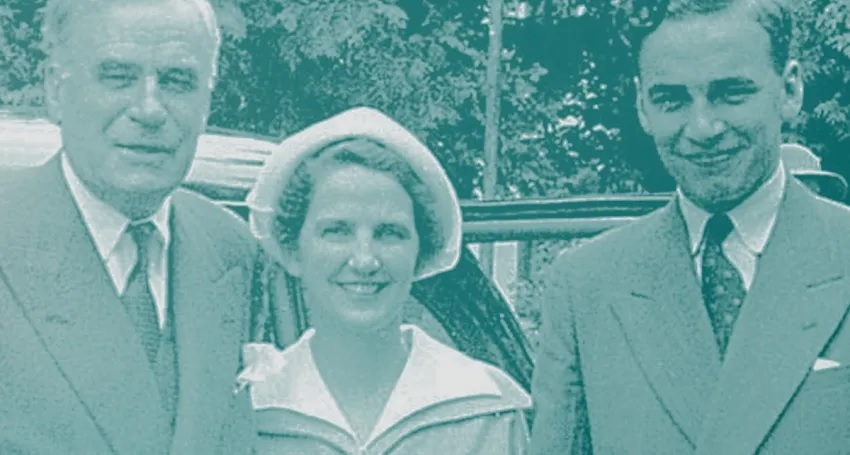
Rupert Murdoch, right, with his parents Keith and Elisabeth Murdoch in 1950. Photo: New South
Previously, after Rupert matriculated from Geelong Grammar School in 1949 with unimpressive grades, he worked briefly as a trainee reporter at the Melbourne Herald under the supervision of his father, spending a few months at court with a friend from his home country before heading to the UK.
His father Keith accompanied him to London in early 1950 and introduced Rupert to leading figures in Fleet Street, helping his son get a summer job as a junior reporter on the Birmingham Gazette – where Rupert made an impression by telling the owner that the paper's editor was so incompetent that he should be sacked.
Rupert then studied at Worcester College, Oxford. Again, he did not excel academically, but his contemporaries found him to be financially astute, a problem solver and a wise risk taker.
Like his grandfather Rupert Greene, Rupert gambled and drank more beer than his parents thought was good for him. And like his father when he was young, Rupert was attracted to the socialist ideology of the Labour Party. He also famously kept a statue of Lenin in his room at Oxford.
SOURCE
The son of a famous Australian war correspondent, Rupert Murdoch took over his father's newspaper business in the early 1950s and began to turn it into a global media empire. He settled in the United States in 1974 and became a naturalized citizen in 1985, settling in New York City.
A 2019 New York Times article about the Murdoch family said: “The Murdoch dynasty knows no boundaries between politics , money and power; all work together seamlessly to serve the overarching goal of imperial expansion.”
His father Keith had accepted Rupert's involvement in left-wing politics and in previous years had put him in touch with the Australian Prime Minister Ben Chifley of the Labor Party, who always responded politely to Rupert's letters. Keith told Chifley that his 18-year-old son was “a keen worker now but I don't know if he will eventually follow in my footsteps.”
In his final months, Keith was convinced that Rupert was on the right track. After finishing his studies at Oxford, Rupert worked on the sub-editing desk at the Daily Express, edited by the legendary Arthur Christiansen, considered one of Fleet Street's greatest editors.
Christiansen was obsessed with detail and worked up to 18-hour days for more than 20 years. His memorable instructions to employees have been passed down through the ages, including the advice to “always, always keep people informed.”
The Daily Express was chosen for Rupert because it was one of the toughest and most prestigious journalism environments. Keith personally asked the newspaper's leaders to arrange a job for his son and Rupert was trained as a junior editor.
The turning point towards media empire
When Rupert took over the reins of News Limited, his journalistic experience was limited to a few stints at the Herald, Birmingham Gazette and Daily Express, along with some experience from conversations with his father about journalism and other areas.
That is why, in his great media career, Rupert is often praised for building a media empire from just one failing newspaper in Adelaide.
Of course, the anecdotes are always a little exaggerated. In fact, when the young Rupert inherited News Limited, the media company published the then-popular News, Mail and Barrier Miner newspapers. It also controlled radio station 2BH Broken Hill and had a minority stake in 5DN Adelaide.
Sure, it was a small company compared to the then Australian media giants the Herald and Weekly Times, but it was still a big start for a 22-year-old. But the News was a boring, mediocre paper that struggled for revenue.
When Rupert arrived in Adelaide, he set about changing that, giving himself the unusual title of “publisher”. The paper’s senior staff were irked, assuming that Rupert would have to sit in a corner desk at the News for a few years before he could really make a contribution. But they were wrong.
Rupert was the direct owner from the start. Editorially, he initially delegated much of the control to Rohan Rivett, who had been editor of the News for nearly two years.
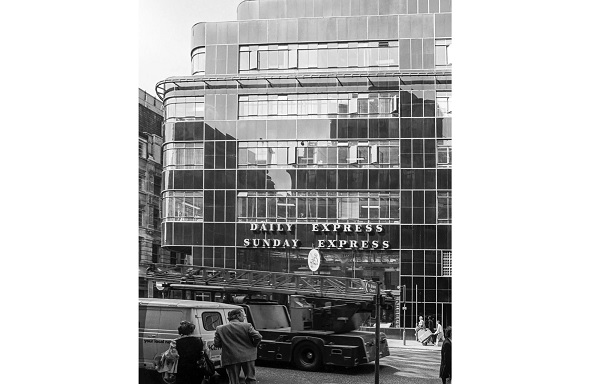
The Daily Express is 'one of the toughest and most prestigious journalism environments'. Photo: Daily Express
Rupert and Rivett were close friends, having been sent by his father to London to report from 1949 to 1951, with instructions to keep an eye on his boss's son. Rivett was the nephew of Alfred Deakin, a renowned war correspondent and former prisoner of war in Southeast Asia during World War II.
When Rupert arrived in Adelaide, Lloyd Dumas, an old rival of his father and chairman of the Advertiser, was intent on driving him out of the business. On 24 October 1953, the Advertiser launched the Sunday Advertiser.
It was designed to crush News Limited's weekend paper, the Mail, the region's largest circulation and most profitable paper. The aim was to force the Murdoch heirs to sell out so the Herald Weekly Times could buy News Limited. Dumas was also a philanthropist and a pillar of Adelaide society.
CAREER
Rupert Murdoch owns hundreds of local, national and international newspaper organisations around the world , including in the UK (The Sun and The Times), in Australia (The Daily Telegraph, Herald Sun and The Australian), in the US (The Wall Street Journal and New York Post), book publisher HarperCollins, and television channels Sky News Australia and Fox News.
He has also owned other television and media giants such as Sky (until 2018), 21st Century Fox (until 2019) and the now defunct News of the World. With a net worth of $21.7 billion as of March 2, 2022, Murdoch is the 31st richest person in the United States and the 71st richest person in the world according to Forbes.
But Rupert immediately made it clear that he would not play by the usual rules of conduct, including the unwritten rule that publishers should not report on each other. A month after the Sunday Advertiser launched, Rupert's Mail ran a front-page story about some kind of dark media practice.
The article states that, after Keith Murdoch's death, Dumas approached his widow, pressuring her to keep the matter a secret and sell the family's controlling stake in the company to him. When Elisabeth refused, he gave her an ultimatum: either sell the Mail to him, or the Advertiser would start a new weekend paper and drive the Mail out of business. The article includes excerpts from a private letter Dumas sent to Elisabeth.
Dumas and Rupert waged a “long war of information”. The Sunday Advertiser was the better product, but many of the Mail’s readers remained loyal and it remained dominant. But since Adelaide was not big enough for two Sunday papers, the two companies called a truce and agreed to merge two years later. Both held 50% of the newly merged Sunday Mail in December 1955. With no competition, it was very profitable. Rupert regarded the merger as a great victory and said Dumas backed down.
Sensationalism and tabloid journalism
Rupert and Rivett then developed the News into Australia’s most liberal newspaper, with a strong sense of bohemianism and sensationalism. Murdoch learned a lot by working in different roles at the paper and developed a reputation for his energy, resourcefulness and ability to see every stage of the production process. He also developed a reputation for criticism and constant change, which one overwhelmed staffer called “Rupertorial disruption”.
Rivett focused on editorial, while Murdoch focused on increasing advertising revenue, improving circulation, cutting costs, and improving production efficiency. Murdoch was particularly good at attracting new retailers and classified advertising to the News. News Limited's profits rose from $62,000 when he started in 1953 to $432,000 in 1959.
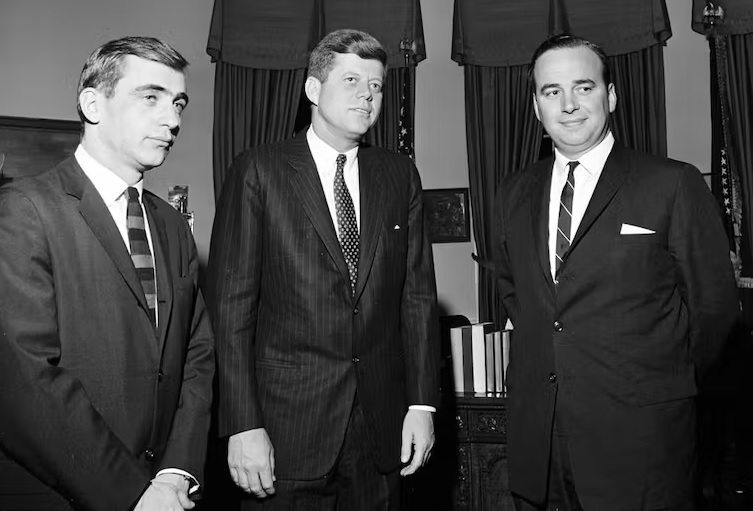
Former US President John F. Kennedy (center) meets Rupert Murdoch (right) in the Oval Office in 1961. Photo: Wiki
Following the success of the News, Murdoch immediately set his sights on expansion. His first move was to show interest in magazine publisher Southdown Press. His next move, in October 1954, was to buy Western Press Ltd, publisher of Western Australia's only Sunday newspaper, the Sunday Times.
It was the Sunday Times where Murdoch honed his tabloid journalism. The paper was “vulgar” even before Murdoch bought it, but he made it “noisier.”
Murdoch began flying to Perth every Friday to personally edit the paper in a more sensational style to boost sales. Murdoch biographer Thomas Kiernan says the Sunday Times was the birthplace of Murdoch’s sensationalist and tabloid journalism, with “exaggerated articles filled with fabricated quotes; sensational information; eye-popping, bloody headlines”.
One notorious article in the issue was headlined “ Leper Rapes Virgin, Breeds Monster! ” He also used contests and flashy advertising to sell the paper, another hallmark of Murdoch’s approach to tabloid journalism.
Rupert stayed in Adelaide for seven years, from 1953 to 1960. In addition to his newspaper production, he learned everything he could about radio and television, including trips to the United States. It was a turning point when Murdoch's Southern Television Limited (60% owned by News Limited) was granted one of two commercial television licences in Adelaide in 1958.
After visiting the Philadelphia offices of the popular TV Guide magazine in the US, Murdoch then launched a weekly television magazine in Australia. Southdown Press began publishing TV-Radio Weekly in December 1957. Murdoch was also buying up small newspapers in remote towns across the country. He acquired the Cold War-born NT News and the Mount Isa Mail in late 1959.
Murdoch quickly turned the NT News into a three-weekly paper and the Mount Isa Mail into a twice-weekly paper, and by 1965 both had become daily papers, said former News Limited chief executive Rodney Lever.
Bold moves
Murdoch made two bold moves in Adelaide in 1958–59. One was political and the other commercial, and as journalist and author George Munster has noted, these moves were not well coordinated: they contradicted each other.
The News took a strong stance on the trial of Rupert Max Stuart, an Indigenous carnival worker who was convicted in 1958 of raping and murdering a nine-year-old girl.
Stuart was sentenced to death in the Supreme Court of South Australia. Rivett believed Stuart had not received a fair trial and the News campaigned vigorously to have the case reopened. Their attacks on the South Australian police force and courts were the talk of the town.
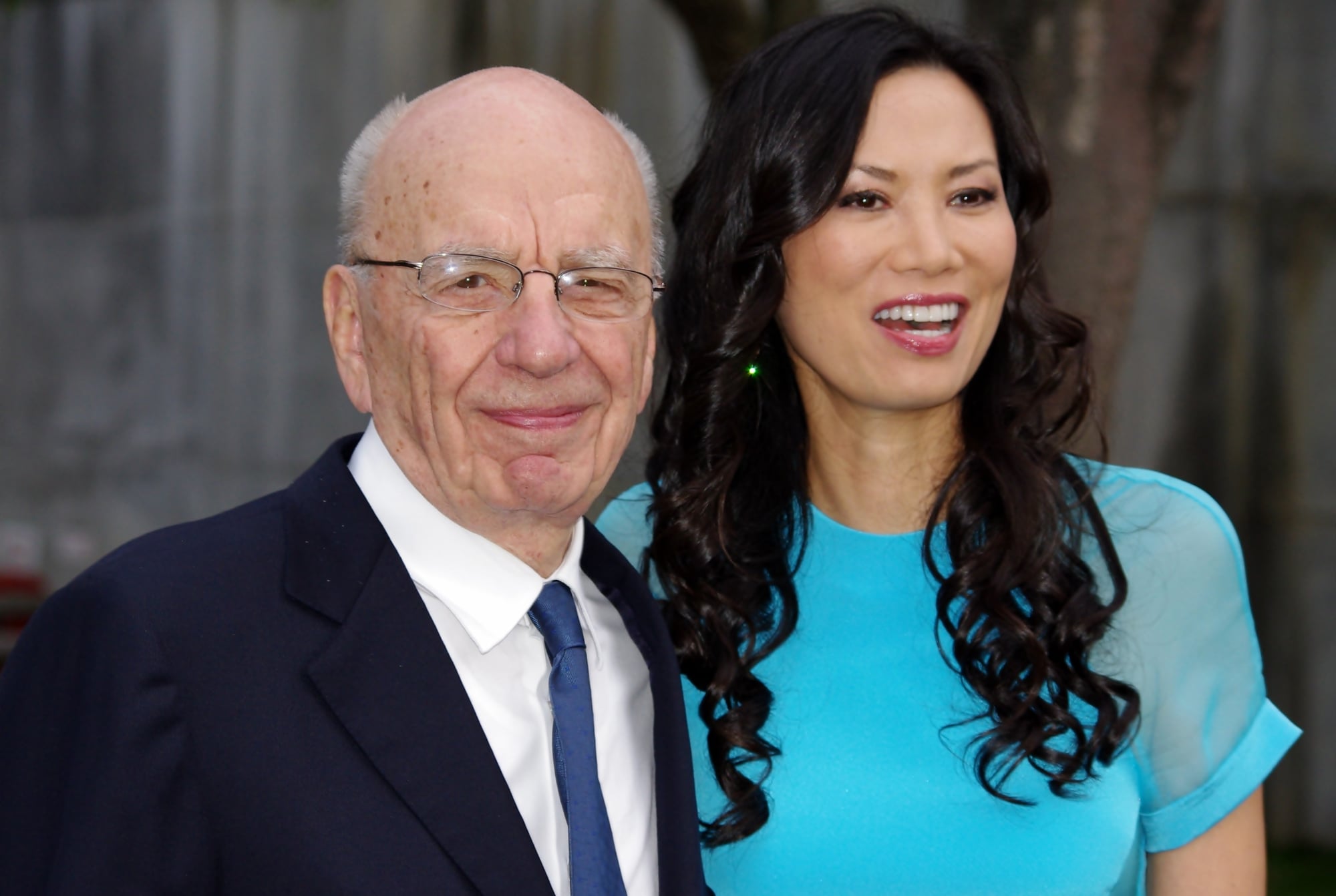
Murdoch and his third wife, Wendi, in 2011. Photo: Wiki
MARRIAGE
In 1956, Murdoch married his first wife Patricia Booker, a former air hostess from Melbourne, and divorced her in 1967. In 1967, Murdoch married Anna Torv, a Scottish-born trainee journalist working for his newspaper The Daily Mirror in Sydney.
On June 25, 1999, 17 days after divorcing his second wife, Murdoch, then 68, married Wendi Deng, a 30-year-old Chinese journalist who worked for STAR TV.
On 11 January 2016, Murdoch announced his engagement to former model Jerry Hall (then 59 years old), and officially married a week short of his 85th birthday.
In early 2023, Murdoch, who is of Irish descent, proposed to Ann Lesley Smith, a 66-year-old former San Francisco police officer. In April 2023, two weeks after the couple became engaged, Murdoch abruptly called off the engagement.
Murdoch backed his friend Rivett “wholeheartedly” and saw the case as a way to attack both the Adelaide and regional governing parties, which had been in power since 1938 as beneficiaries of a deeply flawed electoral system.
However, the News's reporting landed Rivett, Murdoch and other journalists in court on a range of charges, including ancient, rarely used charges of libel and sedition, which could have landed them in jail.
Rupert was said to be shaken by the potential risks of the affair. The charges were eventually dropped and the News published an editorial apologising and rejecting criticism of the judges. There is speculation that local politicians dropped the charges in exchange for the News suspending its campaign against them.
The boss's ruthless determination
While Adelaide newspapers were still reeling from the legal action, Murdoch made another audacious bid to take control of the Advertiser. Backed by the Commonwealth Bank, Murdoch made a more than £14 million offer in shares and cash for Advertiser Newspapers Ltd. At a time when News Limited had less than £1.8 million in shareholder funds, it was one of the largest takeover bids in Australian media history.
However, Dumas withdrew the bid. Advertiser announced that its board had rejected it, and Dumas announced that those holding more than 50% of Advertiser's shares had refused to accept Murdoch's offer.
Dumas added wryly that the South Australian community and the newspaper's shareholders had “real pride in the Advertiser and would never have agreed to it being modelled on the News”, nor would "tabloid king" Murdoch have done so.
The powers that be at the Herald Weekly Times blocked Murdoch, but he made a strong impression and made a bold statement about his ambitions. He also showed the business world that he could raise significant capital and that he would not give up easily.
In a somewhat cruel move, Murdoch wrote in a brief letter from Sydney that he had “immediately fired” his close friend Rivett, whom Murdoch considered “like the brother he never had,” as editor. Some speculated that Rivett’s dismissal may have been part of a settlement with the Adelaide local government over the lawsuit.
Others believe it was inevitable as Murdoch was asserting himself more and his priorities were changing. Either way, it was strong evidence that Murdoch would not let his friendships get in the way of his business – one of the factors that helped him succeed in his long and illustrious media career!
Hai Anh
Source


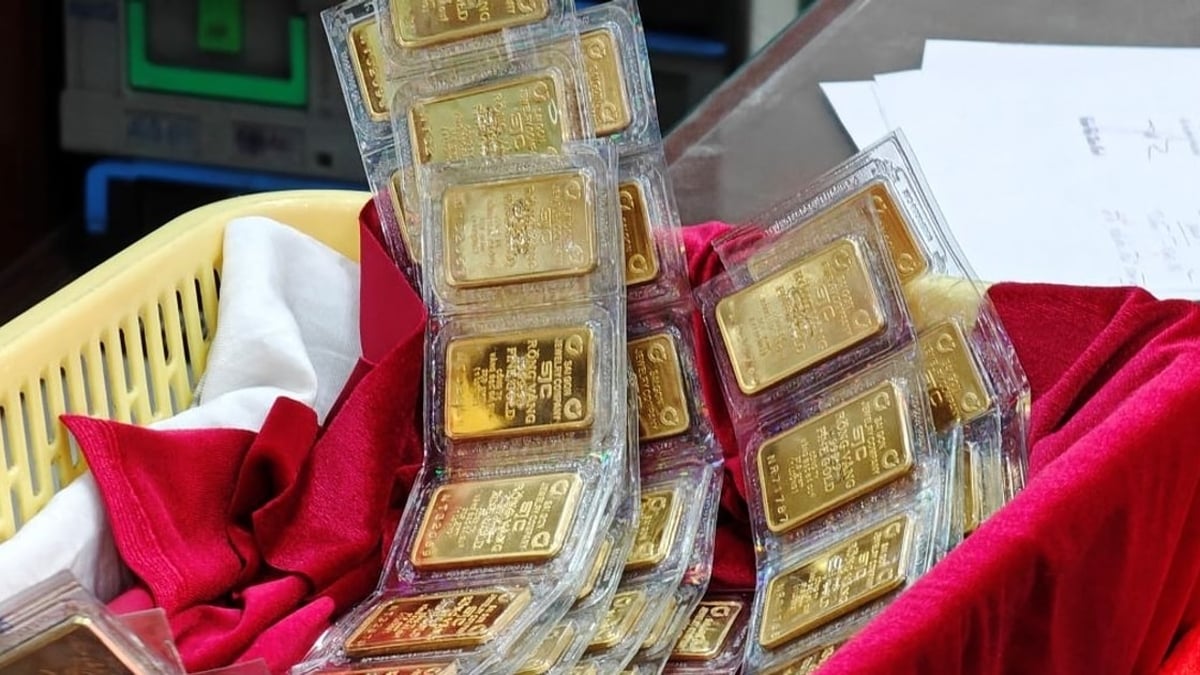




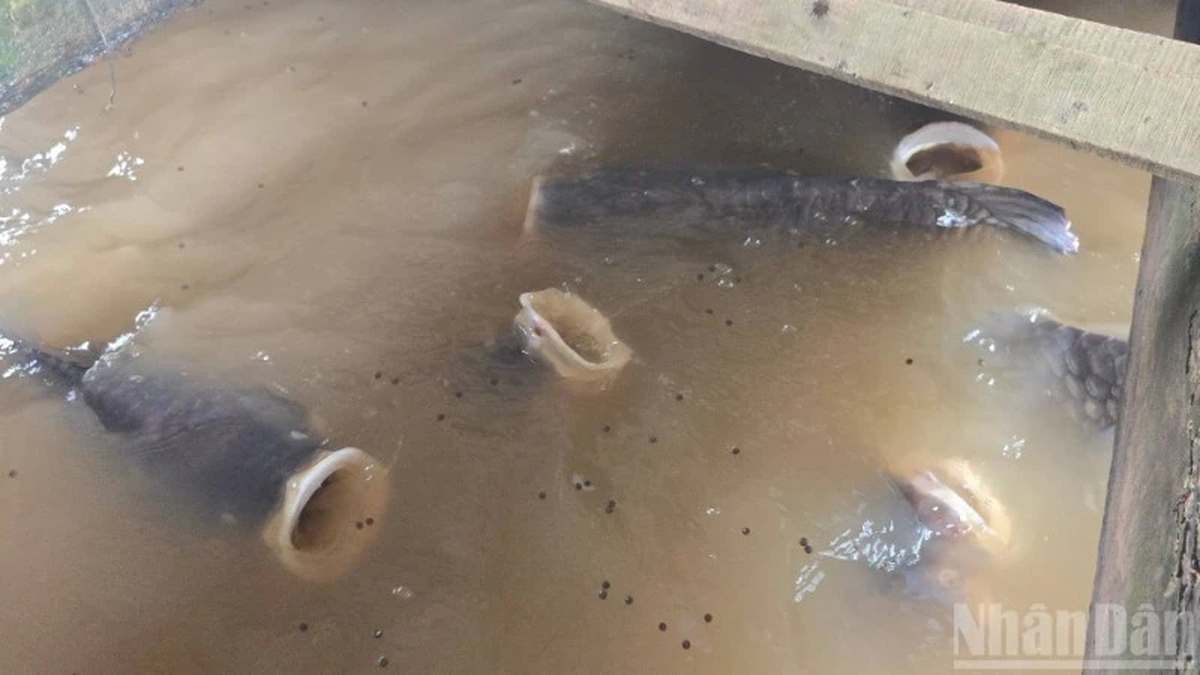















![[Photo] National Assembly Chairman Tran Thanh Man visits Vietnamese Heroic Mother Ta Thi Tran](https://vphoto.vietnam.vn/thumb/1200x675/vietnam/resource/IMAGE/2025/7/20/765c0bd057dd44ad83ab89fe0255b783)












































































Comment (0)